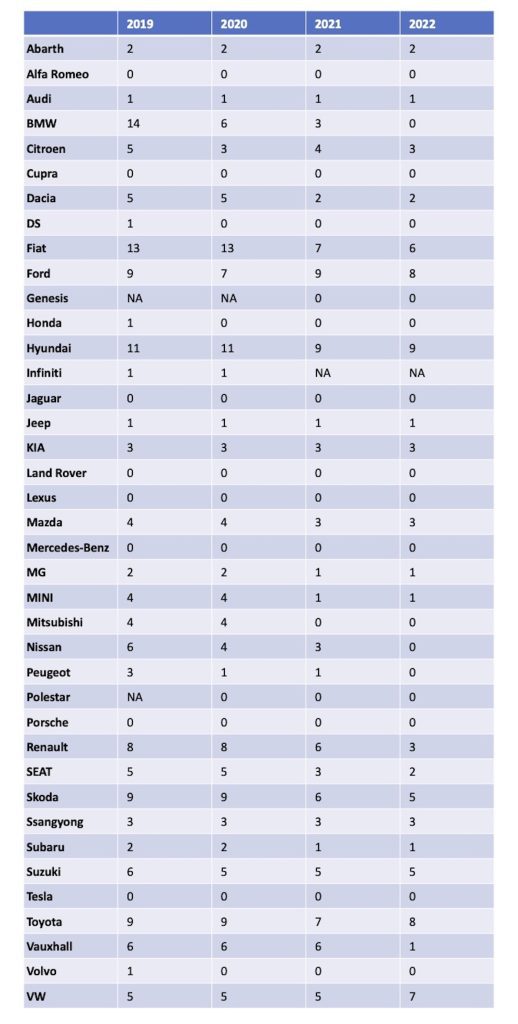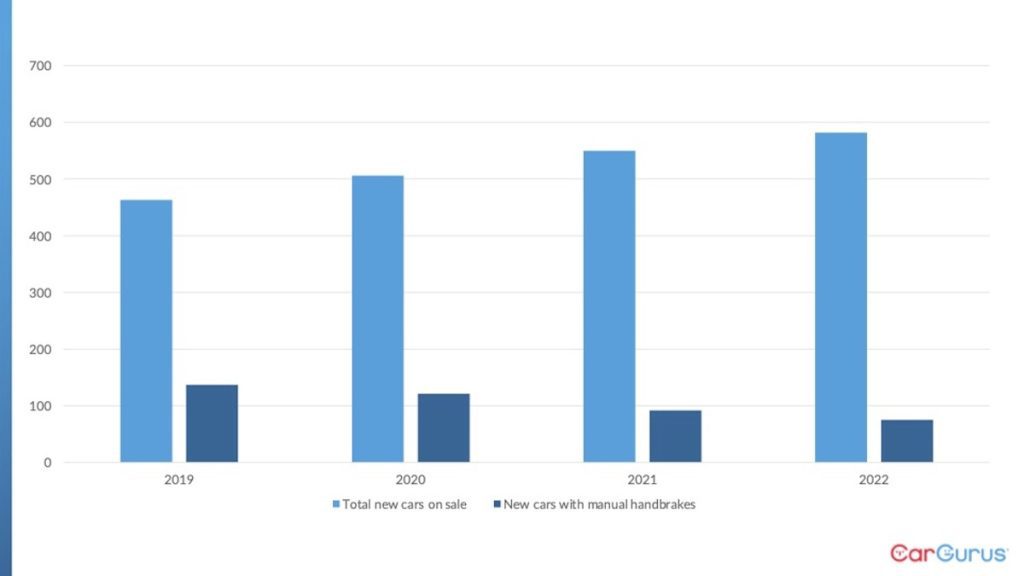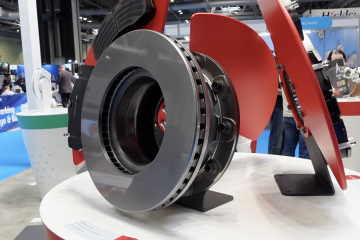Nearly nine in 10 new cars on sale in the UK come with an electronic handbrake, as vehicle manufacturers increase their uptake on new and more convenient technologies.
As vehicle technology continues to advance, some systems need to make way for updates that are more cost-effective to manufacture, and easier to install. Many manually-controlled components in vehicles are making way for electronic alternatives, and the handbrake is one of these, switching from a brake cable to an electrical one.
The fifth instalment of CarGurus’ Manual Handbrake Report shows manufacturers are continuing to switch to the electronic handbrake at pace, with models offering a standard parking brake falling to just 13% in 2022, compared to 17% in 2021, 20% in 2020, 30% in 2019 and 37% in 2018.
Electronic handbrake use on the rise
Both BMW and Peugeot have dropped the manual handbrake all together over the last 12 months, switching to electronic handbrake only on their vehicles. Only Abarth offers a manual handbrake on all its models, although this is a relatively small sample.
The BMW X1, M230i xDrive Coupe and M4 Convertible have all now been fitted with an electronic parking brake while Peugeot has discontinued its only manual-handbrake product, the 108 city car.
In addition, the Citroen C1 and Nissan Micra, both of which featured a manual handbrake, have been discontinued in the UK in the last 12 months.
Other brands that still mix manual and electronic handbrake options are Audi, Fiat, Ford, Kia and Vauxhall.
Number of new cars with manual handbrakes by brand

However, Cargurus’ data shows that some of these carmakers seem to be phasing out older handbrake designs. Audi only offers a manual handbrake on 1% of its vehicles while Vauxhall has switched dropped 40% of its models using the older technology, with others facing an electronic uplift.
Electric vehicles drive manual handbrake decline
“The fifth instalment of our Manual Handbrake Report shows the number of new models featuring a traditional handbrake has continued to fall,” commented Chris Knapman, editor at CarGurus UK. “The discontinuation of some well-known models, along with the increasing prevalence of EVs, has contributed to the 4% drop over the last 12 months.”
New cars on sale with manual handbrakes vs. Total new models on sale

As electric vehicles do not have gearboxes, carmakers are using dial-based systems to control travel directions and parking systems, with automatic electronic handbrakes coming as standard in this case. Therefore, as more carmakers switch to electric drives, manual handbrake use is likely to decrease further.
“Since 2018, we have seen a fall of 24% in the number of new cars being fitted with a manual handbrake,” said Knapman. “It was always likely that the expected 2030 ban in sales of new petrol and diesel cars would spell the end of the manual handbrake – the question now is whether it can even last until then.”




You must be logged in to post a comment.